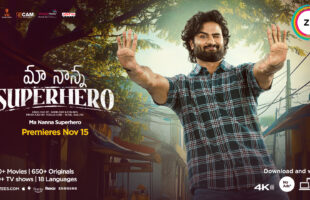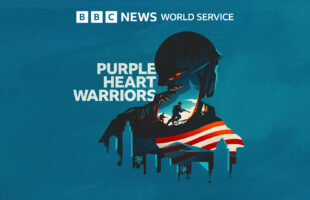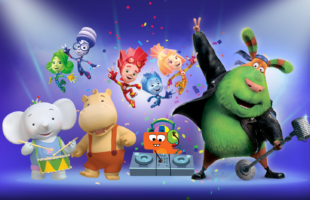A story about a nerdy teen with oversized glasses, tram-track braces and frumpy clothes is an unlikely way for any company to promote its brands, let alone the world’s second largest advertiser. But Ugly Betty, a comedy drama adapted from a Columbian telenovela for Chinese audiences, is turning a handsome profit for the packaged goods giant that funded it, Unilever. The first series of Ugly Wudi, as it’s named in China, launched in September last year. It attracted 73 million viewers on its opening night on Hunan Satellite Television, and ranked number one in its time-slot (10pm to midnight) across all channels on each of the 22 nights it aired. Ratings for the second series – which began in January – are just as impressive, peaking with 9 percent audience share (high for China’s fragmented TV market). Unilever’s Dove soap, which uses the show to get across its ‘real beauty’ message, had just 2 percent of China’s bath and shower products market before the show’s debut. It’s too early to say how market share has shifted, but shipment figures for Dove Shower Cream had grown by 21 percent when the first season ended. Mindshare, the media agency that negotiated the deal with Hunan Satellite Television, says that the show has delivered four times the value of regular TV commercials. Ugly Wudi is already being talk about as the most successful branded content (or entertainment marketing, as it is more fashionably known) initiative in Asia to date. So it is surprising that not much of it reaches Asian living rooms, at least not via the television. The concept, which dates back to the 1930s in the US when soap operas were being created by Lever Brothers and its soap-producing rivals, has done little to threaten the dominance of the TV spot in Asia, which still takes around 60 percent of the region’s marketing budgets. In 2001, BMW’s film series launched on the web (bmwfilms.com) offered a glimpse at a bright future for content in which brands play the heroes. But while it is a multi-billion dollar industry in the US, branded content activity in Asia is estimated to be worth only five percent of what it is in the US, according to media agency estimates. Mateo Eaton, a partner of Mindshare’s Invention-Content unit for North Asia says that this is largely because the “interruption model” of advertising has lost none of its appeal in a market like China, where a spot in an ad break on CCTV is a tried and trusted way to shift product. A big issue is quality. Can marketers or media agencies produce a branded show that is worth watching? Won’t viewers object to advertisers sneaking out of ad breaks and into editorial programming? Eaton admits that the first series of Wudi, while successful in boosting sales, could have been more subtle in how it pushed Unilever products. “I watched the show everyday and some moments made me cringe. It’s blatantly a branded show. But people were aware that Dove was sponsoring it. Only 11 percent of viewers said the level of branding was over the top.” Unilever’s contract stipulated that a certain amount of branding had to be used in the show, which is why it was so heavily commercialised. Not only is Wudi’s “real beauty” a central theme, but a grumpy secretary’s moods are lifted by the soothing qualities of Lipton Tea. Clumsy product name-dropping (such as “Really, you like Dove soap too?” is common throughout, and a role for some of Unilever’s ice cream brands, which include Wall’s and Magnum, is expected to be introduced in the next series. Eaton insists that season three will be more “natural” in how Unilever products are promoted, partly as it won’t be made in such a hurry. The way TV airtime is sold in China does not suit branded content initiatives, which take a long time to plan and produce. “Typically, a broadcaster will come to us with a line-up of shows and give us four weeks to work your brand in. All you can do in that time is slap on a logo and do some basic product placement. Every deal is the same. You end up with crappy sets, dreary storylines and horrible acting,” says Eaton. Ugly Wudi has, in a sense, been a victim of its own success. Because of high ratings, the broadcaster wanted the show to be pumped out as quickly as possible. There were 43 episodes in series one, broadcast over 22 nights. Season two was planned for 60 episodes, but a further 12 were added. “It almost killed our producer,” says Eaton. “People watch this sort of programming like they would a DVD box set. They want to burn through the series to satisfy their TV bone.” Season three of Ugly Wudi, which Mindshare was given a year to produce, will be stretched over a longer time frame. Two more seasons are planned to follow season three. The show was first introduced because the ‘campaign for real beauty’ TV campaign, which has proved successful in most parts of the world, was failing to strike a chord with young Chinese, who were turned off by images of ‘real women’ in Dove TV commercials. But Unilever hasn’t done away with TV ads altogether. Spots featuring the bespectacled teen (who has drawn criticism from some bloggers for not being ugly enough to warrant her name) run in ad breaks around the show, and are supported by PR and brand activation initiatives (such as events and roadshows). Richard Leong, the regional strategy director of Lowe Worldwide, a creative agency that handles Unilever, says that TV ads play an important role in reaching large numbers of people over a prolonged period of time. “It’s a reach and frequency discussion with the client. If you need to reach housewives and lots of them, you can’t do this with a short-lived TV series. If you are going for volume, and most clients – rightly or wrongly – are, you can’t remove TV spots from the media schedule,” he says. An uncomfortable reality for creative agencies like Lowe is that when it comes to creating and negotiating a branded content deal, they usually play second fiddle to media agencies. This is because, explains the South Asia chief executive of Starcom MediaVest Group Ravi Kiran, media agencies have closer relationships with content makers. Without such ties, Starcom wouldn’t have been able to persuade the makers of the Indian movie Krrish to shoot 80 percent of the film in Singapore. The sweeping cityscapes are like a “feature length commercial” for client Singapore Tourism Board, says Kiran. Starcom launched a branded entertainment unit called The Bridge last year. It does product placement, product insertion (where the product is used or mentioned), product integration (where the product is integral to the storyline), extended content (the show’s equity or talent is used in media beyond the show) and custom content (never-before-seen content created from scratch). Starcom’s rivals have similar offerings. Mediaedge:cia has MEC Access, Carat has Engage and OMD has Fuse. But there isn’t an equivalent on the creative agency side. David Mayo, the regional chief executive of Ogilvy & Mather Advertising, Asia’s largest advertising network outside of Japan, argues that special units are unnecessary. It’s who has the idea that matters, and that is still the natural realm of the creative agency. “Have we thought about setting up a specialist branded content unit? Yes, we have. But as media converges so it becomes more difficult to categorise different types of communication. Branded content is the Coke cans on American Idol, and the movie star using a Visa card to buy pizza. Clients are looking for big ideas, this much hasn’t changed.” One of Ogilvy latest ventures is to encourage its clients to buy shares in a new production company started by New Zealander Peter Jackson, the director of Lord of the Rings. As well as making blockbuster feature films and straight-to-video movies, some content will be available specifically for brands to get involved – and early on in the production cycle, at the script-writing stage. “Clients want to be in the spaces where the consumer is the most willing,” says Mayo. Consumers are more likely to accept a brand’s involvement in a programme because of the state of mind they are in while watching, says Mayo. He points to the work of Dr Robert Heath, a Bath University professor and expert in the field of low attention processing. Dr Heath’s studies have shown that consumers are more accepting of brands when they are at their most relaxed. “When you are in a vegetative state on the couch in front of the television all the doors are open,” says Mayo. “You are in a more relaxed state watching Austin Powers driving a Volkswagen than you are watching a TV ad for the new VW Beetle.” Kiran agrees. He says that people are more “immune” to TV ads than they were ten years ago. People now instinctively associate TV breaks with a convenient time to put the kettle on, which explains why ratings plummet during ad breaks. He places some of the blame for this with creative agencies. “The quality of the average commercial has fallen quite dramatically in Asia. We are now in the era of hard-working TV advertising. TV ads have become more about tactical promotions than brand building – which branded content, done well, gives you.” It is therefore surprising that Starcom’s The Bridge hasn’t exactly set the media world alight since it launched. It has struggled to attract business from non-Starcom clients and rumour has it that the unit could be wound up this year. The reality is that branded content only thrives in pockets of the region, in India, Australia and the Philippines, where there are vibrant entertainment industries and more commercially-minded broadcasters. Universal McCann launched UM Entertainment in the Philippines in September 2007. Managing director Venus Navalta says the unit has allowed her clients to avoid “hit and miss” content served up by broadcasters. It was also launched in response to the growing trend of broadcasters going directly to advertisers with content ideas. One of UM Entertainment’s latest productions is Jollitown, a 30-minute show for kids funded by the Filipino fast food chain Jollibee. The show is designed to build links between Jollibee and the family values that the show tries to communicate through its characters. The first season of Jollitown aired on GMA7 every Sunday morning at 9.30. It ranked number 3 among top-rating children’s programmes with 10 percent audience share. According to brand metrics studies done since the show launched, Jollibee now scores higher as a company that “promotes good values” and “promotes the welfare of Filipino children and the family” among Filipino mothers. The brand also now scores higher among Filipino children who say that Jollibee is their “most loved mascot”. The client is so happy with the results that the second season of Jollitown is now in production. Branded content can be as effective as a TV spot campaign at less cost, which is an attractive proposition for marketers with shrinking budgets. Mindshare China’s Eaton estimates that a TV ad campaign may cost a company RMB 50 million (US$7.3 million). But sponsoring a TV show, plus some scripted brand integration, can cost as little as RMB 10 million – and is usually more effective. “With a TV campaign the money goes on media. With a branded content initiative the money goes on production,” he says. “The scope for making savings is huge.” For now at least, branded content initiatives are limited by the dominant model for buying and selling TV advertising and an unwillingness to change it. This is especially true in a serious downturn when marketers tend to revert to more traditional ways of communicating. But Eaton insists that now could the right time for broadcasters and advertisers to be brave and try branded content. “Now is a time when budget cuts mean a drop from 30-second to 15-second commercials,” he says. “Branded content is a way of keeping ROI where you want it to be.” TVAplus
Ad – Before Content
Related Articles
ZEE5 Global announces the digital premiere of Telugu blockbuster Maa Nanna Superhero
Citadel: Honey Bunny Was Prime Video’s Most Watched Series Globally This Weekend
BBC World Service announces new six-part audio drama Purple Heart Warriors
Animotion Media Group Signs Exclusive Deal with ADA
- Banijay Rights Appoints Sarah Mottershead as VP for Middle East, Africa, Israel, Greece & Cyprus
Sarah Mottershead as VP for Middle East, Africa, Israel, Greece & Cyprus
TelevisaUnivision partners with Anima Kitchent to broadcast Cleo & Cuquin







